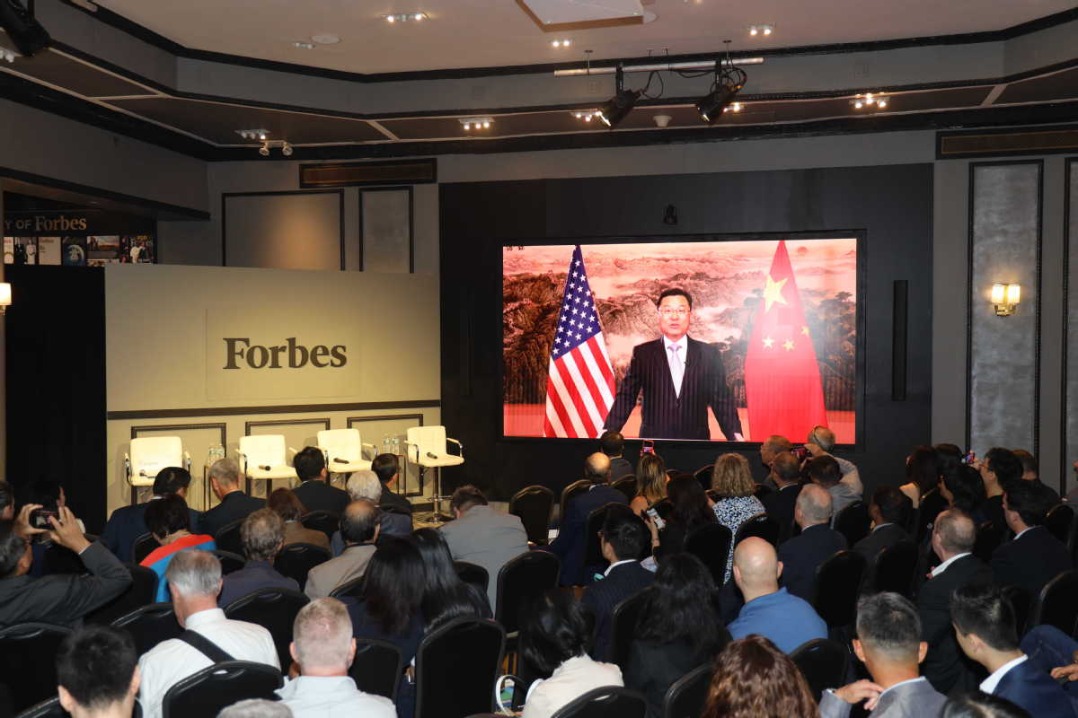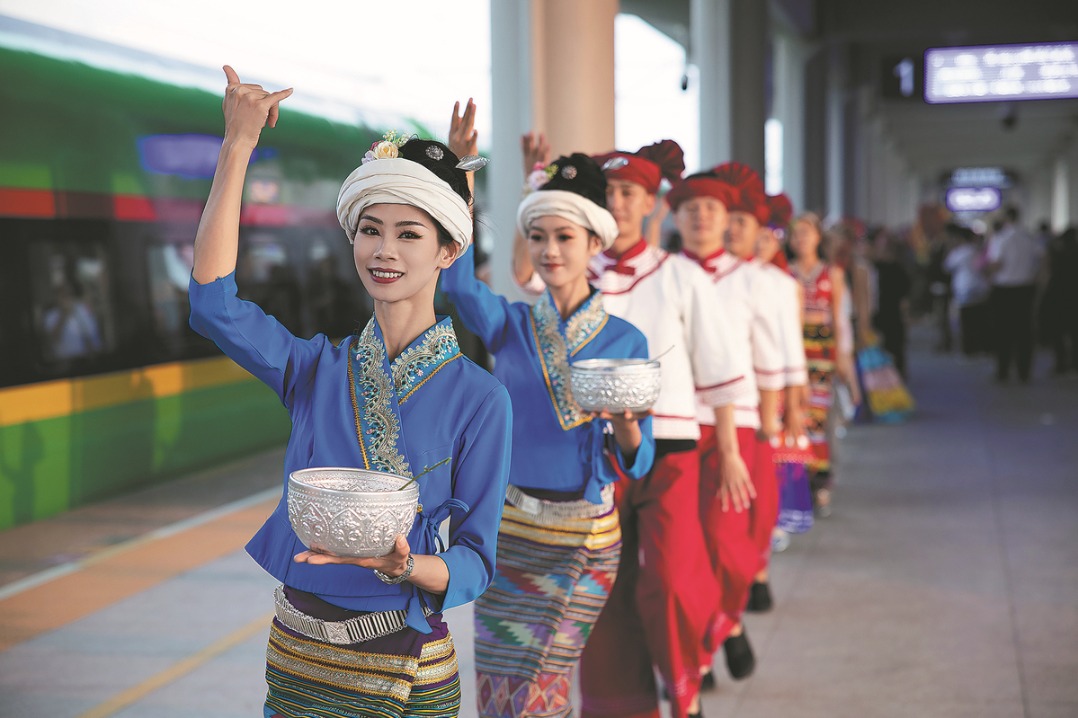Mayoral candidates in San Francisco court Chinese voters


On the bustling streets of San Francisco's Chinatown, campaign posters adorned with Chinese characters vie for attention alongside colorful shop signs and fruit stands. As the November elections draw near, candidates are intensifying their efforts to win over Chinese American voters, a crucial demographic in the city's political landscape.
San Francisco has the highest percentage of Chinese Americans among major US cities, with 22 percent of its population identifying as such. When considering the broader Asian American community, the figure rises to 37 percent, according to the latest data from the US Census Bureau.
"The candidates, whether for mayor or supervisors, all hope to get Chinese American voters' support because we have become an important voting bloc that they could not afford to ignore," Louis Lam, chairman of the American Teo Chew Business Association and a board member of the Chinatown nonprofit Chinese Newcomers' Center, told China Daily.
The current mayoral race exemplifies the heightened focus on Chinese American voters. Incumbent Mayor London Breed, facing a challenging reelection bid, has seen her approval rate shift dramatically among this demographic, which played an important role in her previous election.
A poll conducted by the San Francisco Chronicle in February revealed that 80 percent of potential Asian voters disapprove of Breed's performance, and only 10 percent support her.
Recognizing the need to regain favor with Chinese American voters, the mayor has taken actions such as increasing the police budget, granting law enforcement more authority, addressing homeless encampments, and even embarking on a trip to China.
During her April visit to China, Breed signed an agreement to bring a pair of pandas to the San Francisco Zoo, a move that resonated strongly with Chinese American advocates. She also lobbied for the restoration of direct flights between China and San Francisco International Airport, which had been disrupted during the pandemic.
Those efforts appear to be paying dividends. A recent Chronicle poll indicated that Breed's approval rating among Asian voters doubled over the past six months. The resurgence in support from the Asian and Chinese American communities has bolstered her standing in the mayoral race.
However, Breed's challengers are not ceding ground in the battle for Chinese American votes.
Former San Francisco supervisor Mark Farrell, one of Breed's main rivals, recently secured a crucial endorsement from the San Francisco Chinese American Democratic Club — an organization that had previously backed Breed in her last mayoral campaign.
Farrell has been a frequent presence at community events in Chinatown, distributing Chinese-language flyers and engaging with potential voters. His campaign platform emphasizes cracking down on street homelessness and drug use, issues that resonate strongly with many Chinese American residents.
Another prominent challenger, Daniel Lurie, founder of an anti-poverty nonprofit and heir to the Levi Strauss fortune, has taken a strategic approach to courting Chinese American voters.
Lurie has hired a Chinese American campaign manager and enlisted Chinese American activists to bolster his outreach efforts. His campaign has been marked by personal interactions with Chinese American residents, visiting them in their homes and attending community banquets. Like his rivals, Lurie has prioritized addressing public safety concerns and combating drug use in his campaign promises.
The race also features San Francisco Board of Supervisors President Aaron Peskin, who entered the contest later than his competitors but brings a strong base of support from Chinatown.
As the longtime supervisor representing the district, Peskin has cultivated deep ties within the Chinese American community. His implementation of Cantonese-speaking workers during his tenure as board president has particularly endeared him to Chinatown residents.
Supervisor Ahsha Safaí, another mayoral hopeful, is leveraging his existing relationships with the Chinese community to garner support. Safaí pointed to his track record of addressing issues important to Chinese American voters, such as securing funding for nonprofits supporting single-room occupancy units and sponsoring legislation to increase police foot patrols. Safaí also has hired a Chinese American campaign manager to strengthen ties with the city's Chinese community.
The intense focus on Chinese American voters in this election cycle is no coincidence. Political consultant Jim Ross emphasized the critical nature of the demographic, saying to San Francisco news website Mission Local, "It will be very challenging for any candidate to win without getting the most votes from that coalition."
The political engagement of San Francisco's Chinese American community has reached new heights, driven by several factors, said Lam, who attributed the surge to the community's increasing education levels and a growing awareness of their voting power.
"All the people I know have realized the importance of casting ballots. Even those who do not read or speak English, their children, who are well educated, can help them," he said.
The successful recall elections in 2022, which replaced several progressive school board members in the city and the liberal district attorney Chesa Boudin, served as a watershed moment, demonstrating the community's ability to effect change through the ballot box, he said.
Economic concerns and public safety issues remain at the forefront for many Chinese American voters. As Lam pointed out, a significant portion of the community consists of small- and medium-sized business owners or working-class individuals who are acutely affected by the city's economic challenges and crime rate.
"It's tragic that many businesses in Fisherman's Wharf remain closed, and an office tower downtown was sold nearly 80 percent less than the price about a decade ago," said Lam, adding that it was why he switched his support from Breed five years ago to Farrell and Lurie for the upcoming election.

































